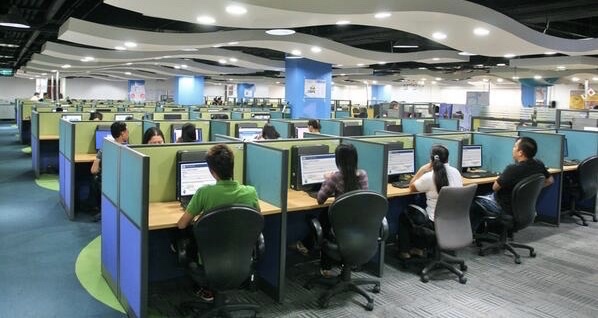Over the past ten years, technology has completely revolutionised the way consumers interact with brands, and as we enter a new decade, customer demands are only going to increase. No longer are customers accepting operating on a nine-to-five basis or relying solely on phones to contact a business.
“Customer expectations these days are sky-high, and if they’re not met, then the customers will move on to companies that can meet or exceed them. It’s as simple as that. It’s also the reason why some of the world’s leading corporations such as Amazon are customer experience-obsessed,” says Ralf Ellspermann, CEO of PITON-Global, an award-winning call centre outsourcing provider in the Philippines.
Without offering world-class call centre services, it is very easy for a company to fall behind the competition, but to offer a truly world-class omnichannel call centre experience is costly. To ensure timely responses to customers, a call centre needs highly skilled agents and complex technology, which both require a large sum of money to establish and maintain.
“Consumers today expect to be able to communicate with brands on a 24/7 basis and across multiple channels. These channels include phone, email, webchat, and social media. A company that fails to provide support through all these channels will find it difficult to compete with companies that do. There’s also a trend to provide call centre services in not just one but multiple languages,” says Ellspermann.
Ever-increasing consumer demands and expectations as well as rising costs are why contact centre outsourcing has become a popular choice for businesses across the globe, particularly in Australia. By utilising an outsourced call centre, companies can reduce costs while still ensuring their customers are receiving high-quality service.
Outsourcing call centre services to the Philippines is not just about keeping customers happy, though; it can offer much more for businesses. Alongside the customer service role, agents can manage tasks such as inbound sales, customer acquisition, back-office support, and technical support as needed.
“Clients come to us not just to help them reduce operating costs but also, and more importantly, to enhance the customer experience across all customer touch-points. It’s not just the obvious front-office services, but also the non-customer-facing back-office ones that can have a significant impact on the overall customer experience. Acquiring customers is hard, time-consuming, and resource-intensive, so companies want to make sure that they keep the ones they have by providing world-class support,” says Ellspermann.
By outsourcing call centre services to the Philippines, businesses can quickly scale the number of agents assigned to a program, which helps create the most efficient workforce possible. This level of efficiency allows clear forecasts of future staffing requirements, helping to improve profit without detracting from the quality of the service provided to the customers.
“Improving operating efficiencies is another value-add that an experienced call centre outsourcing provider can help with. And that’s where technologies come in. A company that makes use of cutting-edge tech such as AI can improve operating efficiencies. This, of course, adds to the overall cost savings and contributes to an enhanced customer experience,” Ellspermann explains.
Alongside the skilled workforce, the country has built countless state-of-the-art service delivery centres. The cost of operating out of the Philippines is still significantly lower than maintaining a call centre in Australia. In fact, outsourcing call centre services to industry-leading providers such as PITON-Global in the Philippines can result in savings of up to 50% when compared to onshore vendor rates.
“When it comes to best-value call centre outsourcing, there’s no better place than the Philippines. The key to a successful, long-term outsourcing engagement is finding the right partner organisation in the Philippines. And the right organisation means a company with the needed domain expertise and service capabilities,” says Ellspermann.
“There’s no doubt that companies in Australia will continue to outsource their call centre requirements to the Philippines. In terms of cost, English-language proficiency, cultural affinity, and service capabilities, there’s really no alternative. It’s also what makes the Philippines the world’s largest and leading call centre outsourcing destination, contributing an incredible AU$35 billion to the economy each year and employing 1.2 million Filipinos,” he adds.


